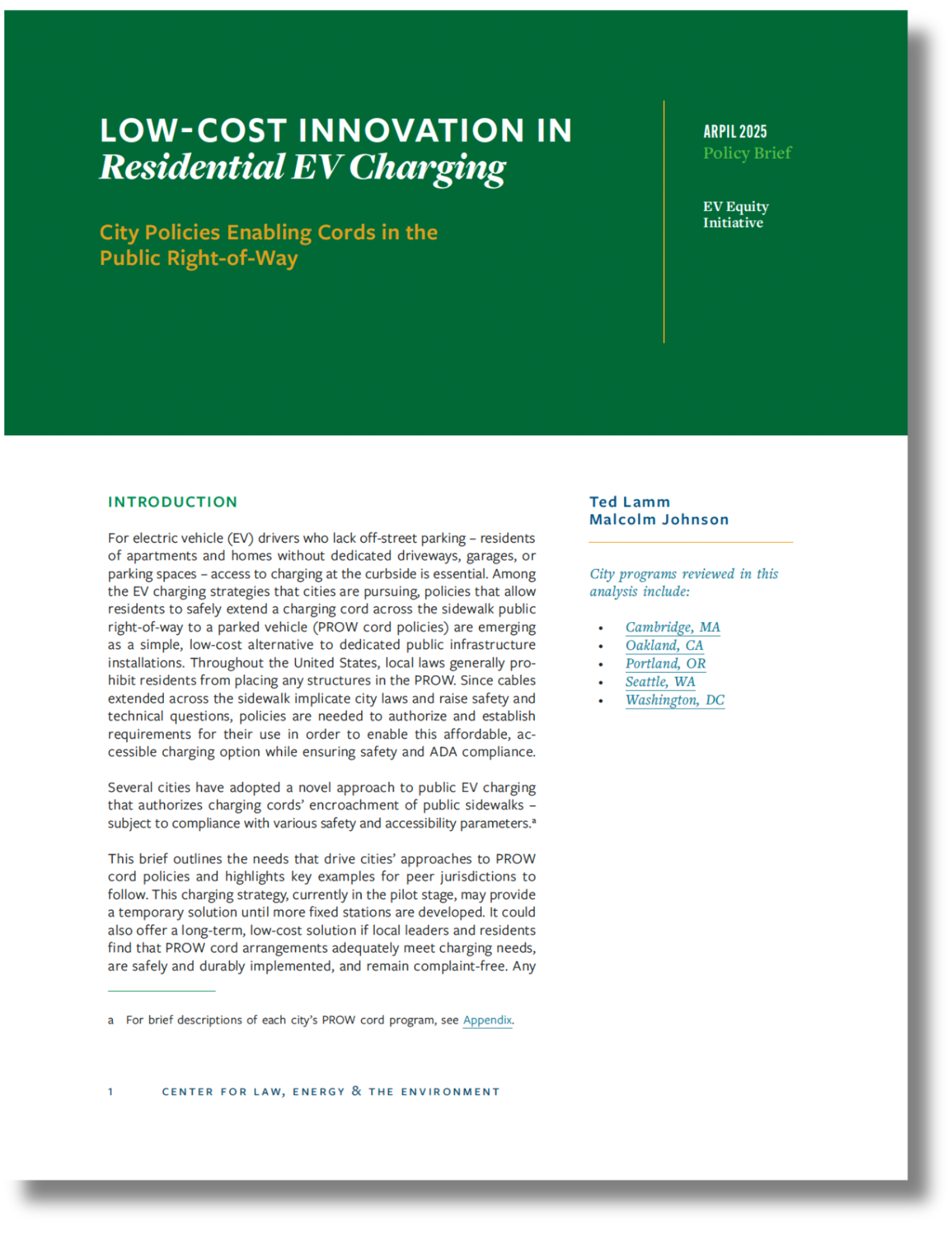City Policies Enabling Cords in the Public Right-of-Way
April 2025
 For EV drivers who lack off-street parking in a garage or driveway, access to charging at the curbside is essential. Among the EV charging strategies that cities are pursuing, policies that allow residents to safely extend a charging cord across the sidewalk public right-of-way (PROW) to a parked vehicle are emerging as a simple, low-cost alternative to dedicated public infrastructure installations. But affirmative policies are needed to authorize their use and allow this affordable, accessible charging option while ensuring pedestrian safety and preventing conflicts with other parking and curb needs.
For EV drivers who lack off-street parking in a garage or driveway, access to charging at the curbside is essential. Among the EV charging strategies that cities are pursuing, policies that allow residents to safely extend a charging cord across the sidewalk public right-of-way (PROW) to a parked vehicle are emerging as a simple, low-cost alternative to dedicated public infrastructure installations. But affirmative policies are needed to authorize their use and allow this affordable, accessible charging option while ensuring pedestrian safety and preventing conflicts with other parking and curb needs.
US cities have begun instituting these policies from Washington, DC to Seattle. Although there is some variation among different cities’ approaches, PROW cord policies all address the same set of core issues:
- Safety and accessibility concerns (including requirements for ADA-compliant cord cover ramps)
- Local parking rules and curb use conflicts
- Technical and electrical design features, and
- Liability considerations.
To account for each of these issues, local agencies have pursued two policy pathways: 1) creating a temporary “allowed/by-right use” or exemption from city PROW use restrictions and issuing guidelines on an agency website, or 2) creating a formal permit program. CLEE’s policy brief describes PROW cord policies in further detail then compares and contrasts their adoption in five different cities.
CLEE’s publication follows a development in the PROW cord policy realm; in March 2025, Oakland became the fifth US city (and the first in California) to institute its own policy enabling EV cords in the PROW via the “allowed/by-right” pathway. CLEE supported Oakland’s efforts with research and policy guidance.
Access CLEE’s full policy brief here: Low-Cost Innovation in Residential EV Charging: City Policies Enabling Cords in the Public Right-of-Way
Contact Ted Lamm or Malcolm Johnson for more information.